Year 2 Measurement Worksheets
Choosing the Correct Units of Measure
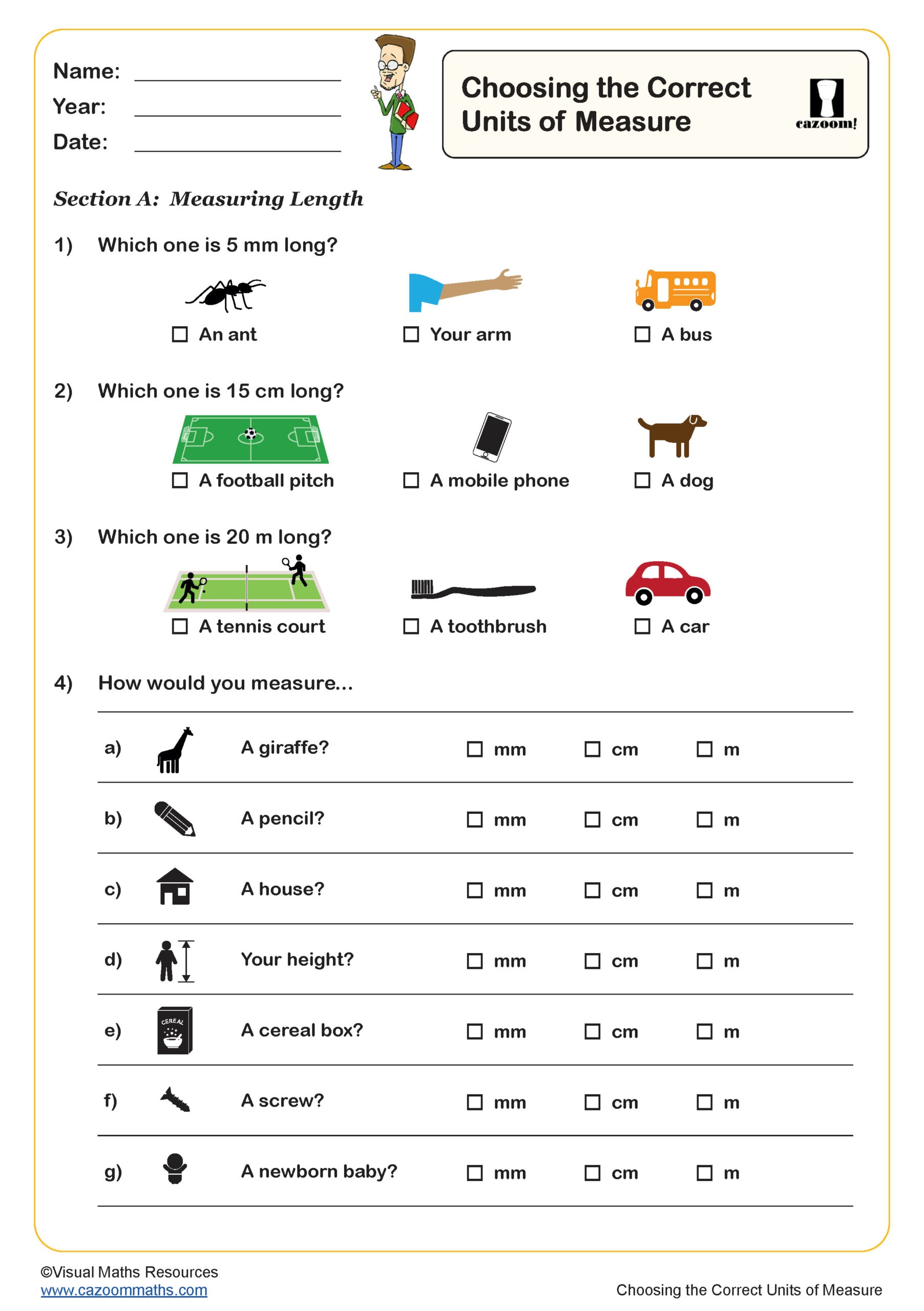
Combining Coins (B)
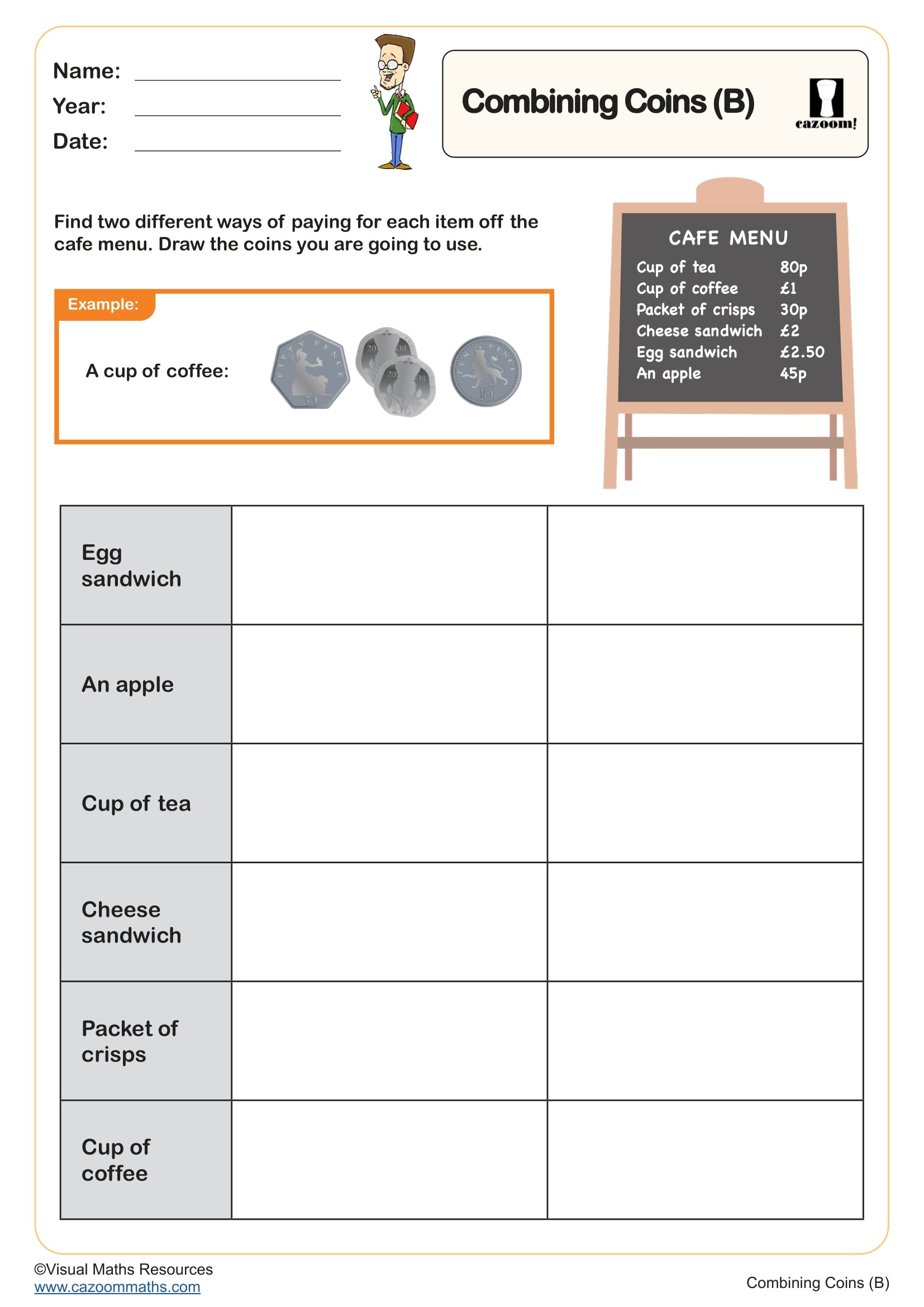
Compare Intervals of Time
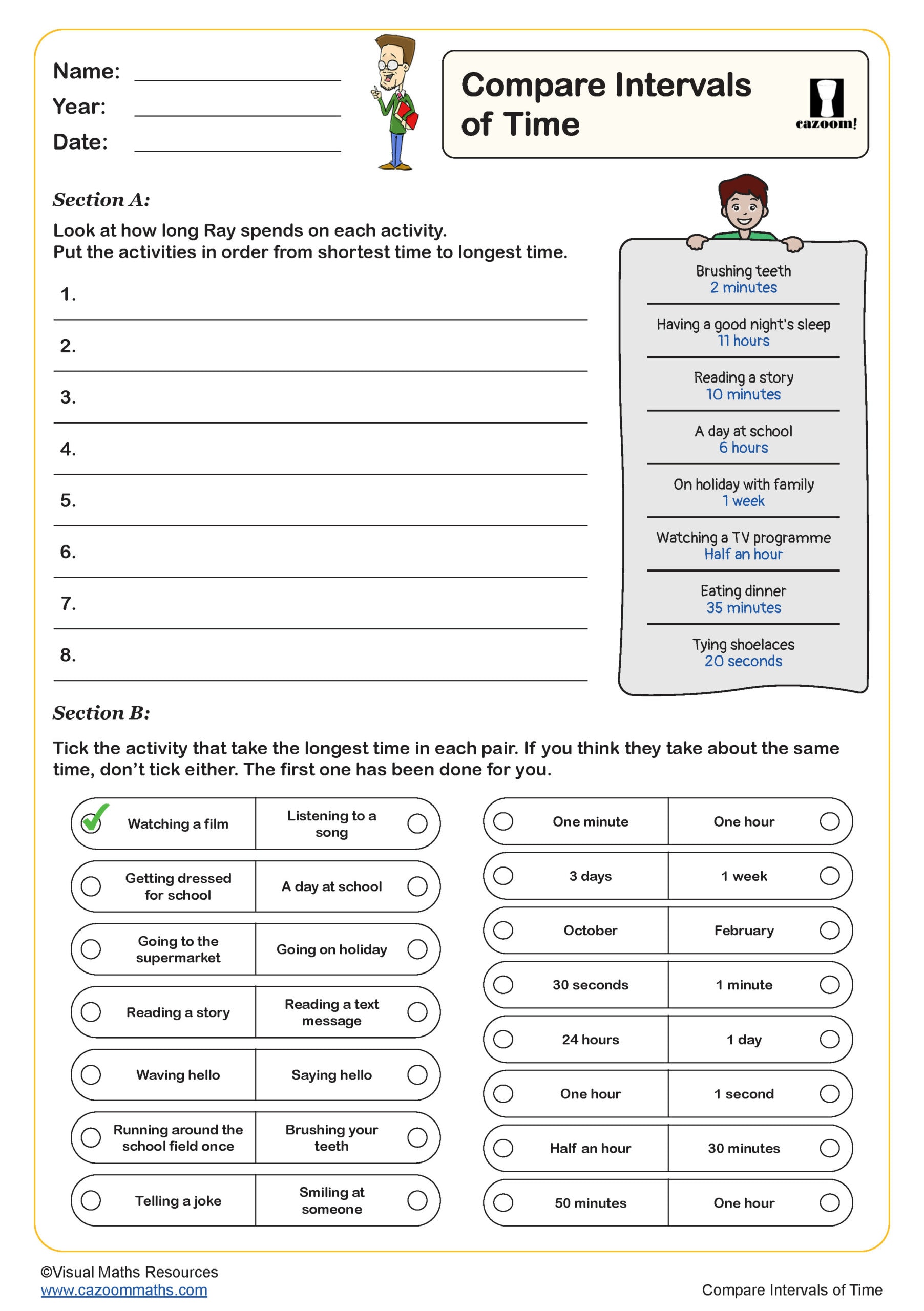
Compare Lengths
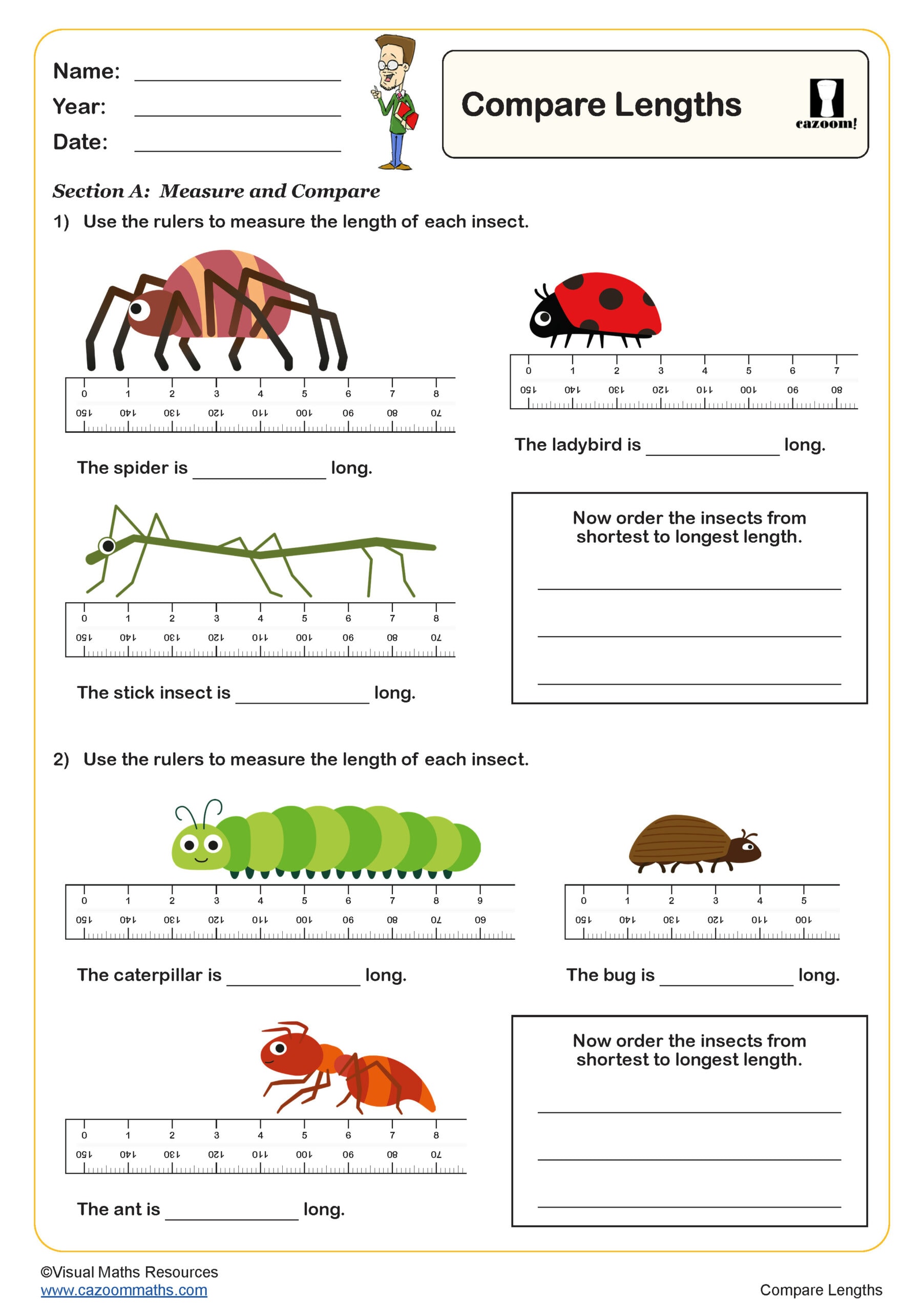
Comparing Amounts of Money
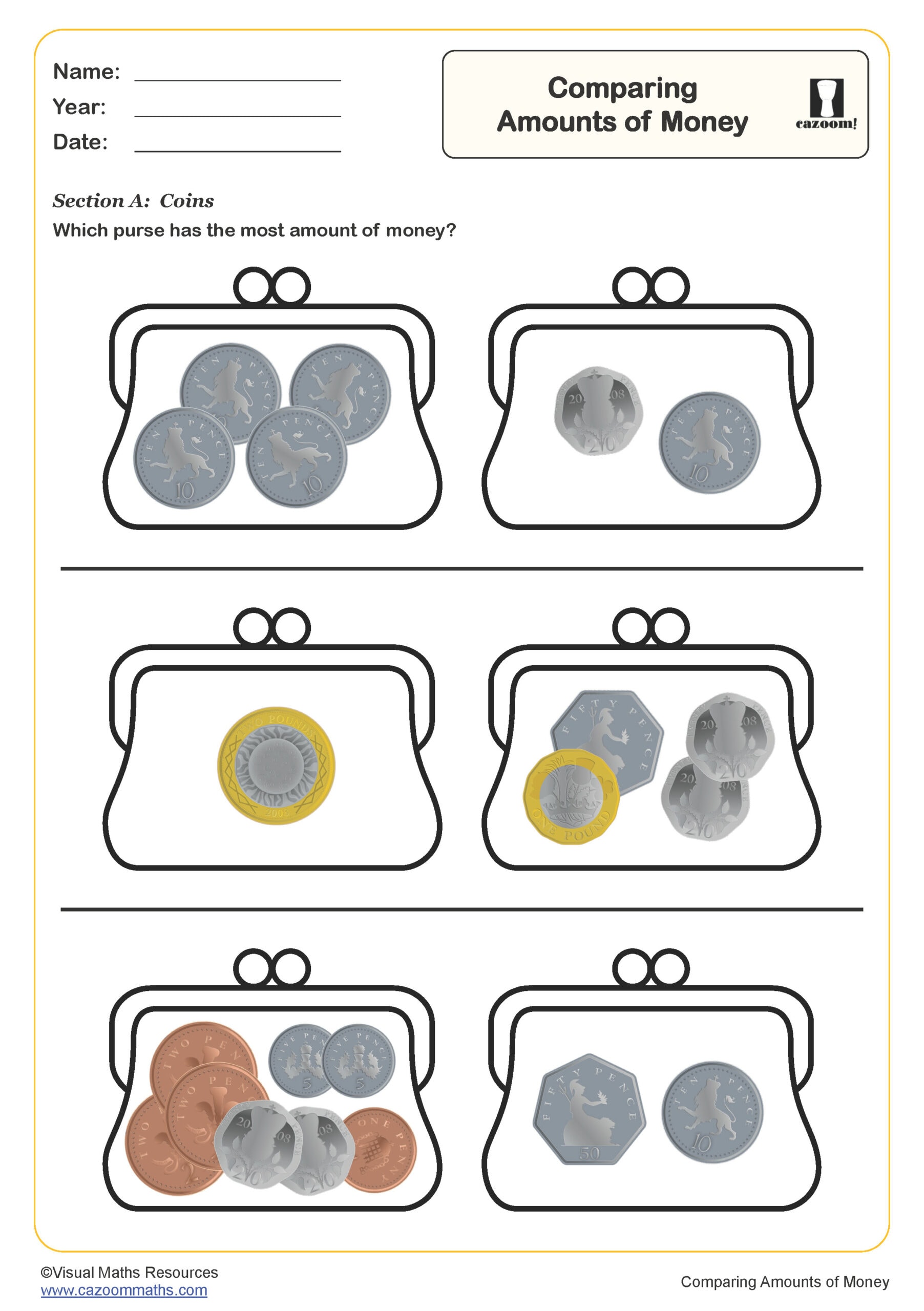
Giving Change (Within £ 1)
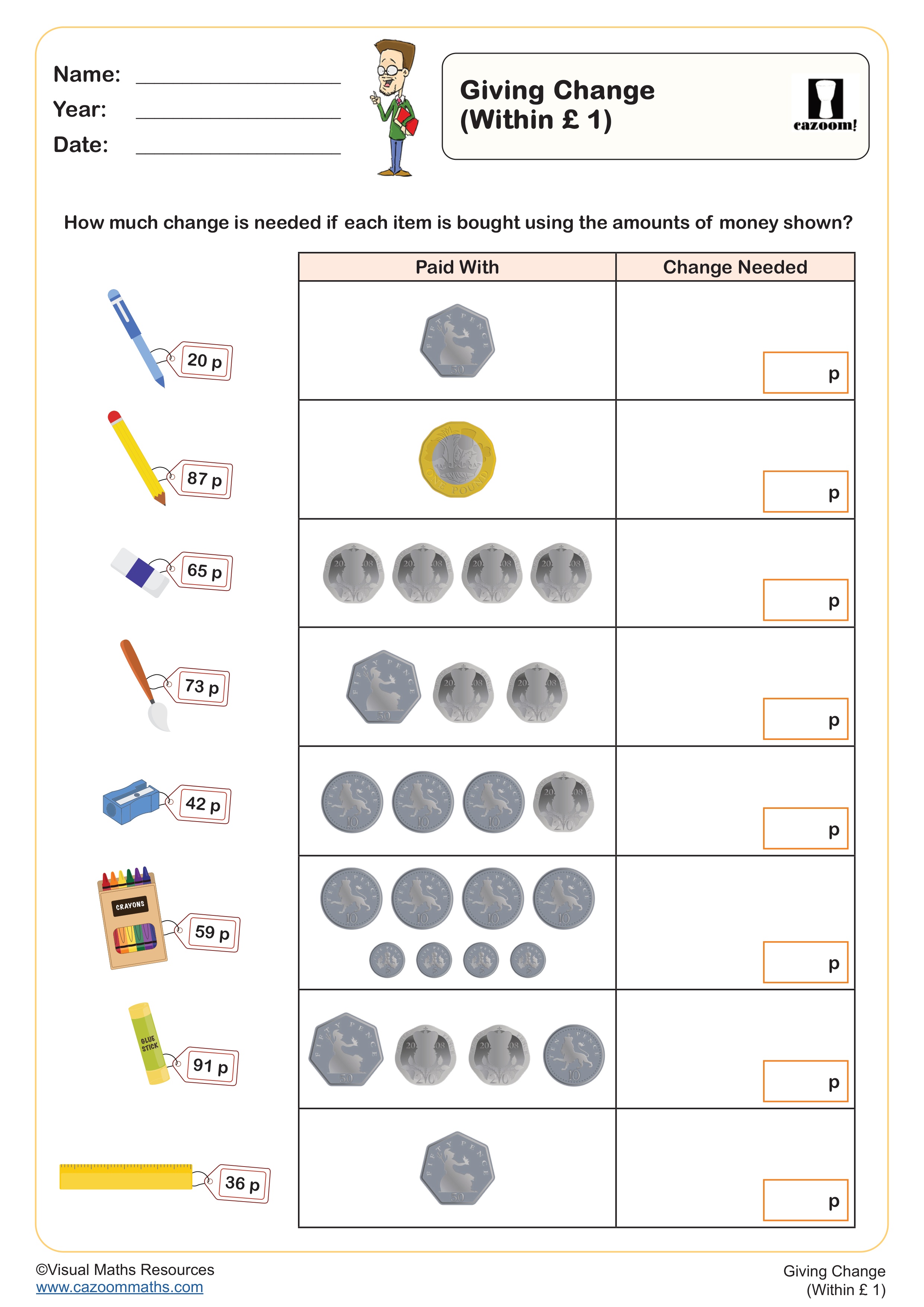
Learning to Tell the Time (C)
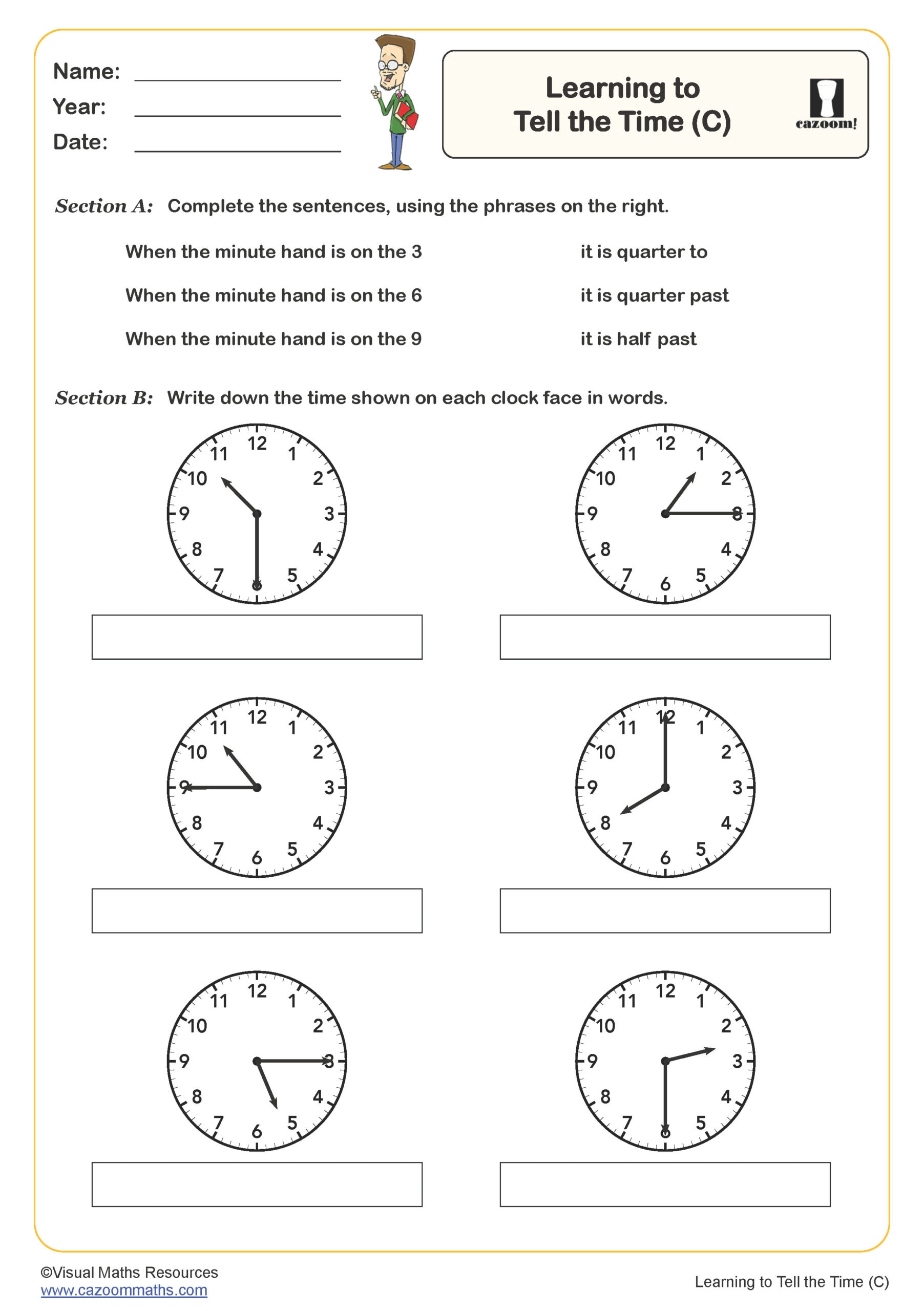
Making £1
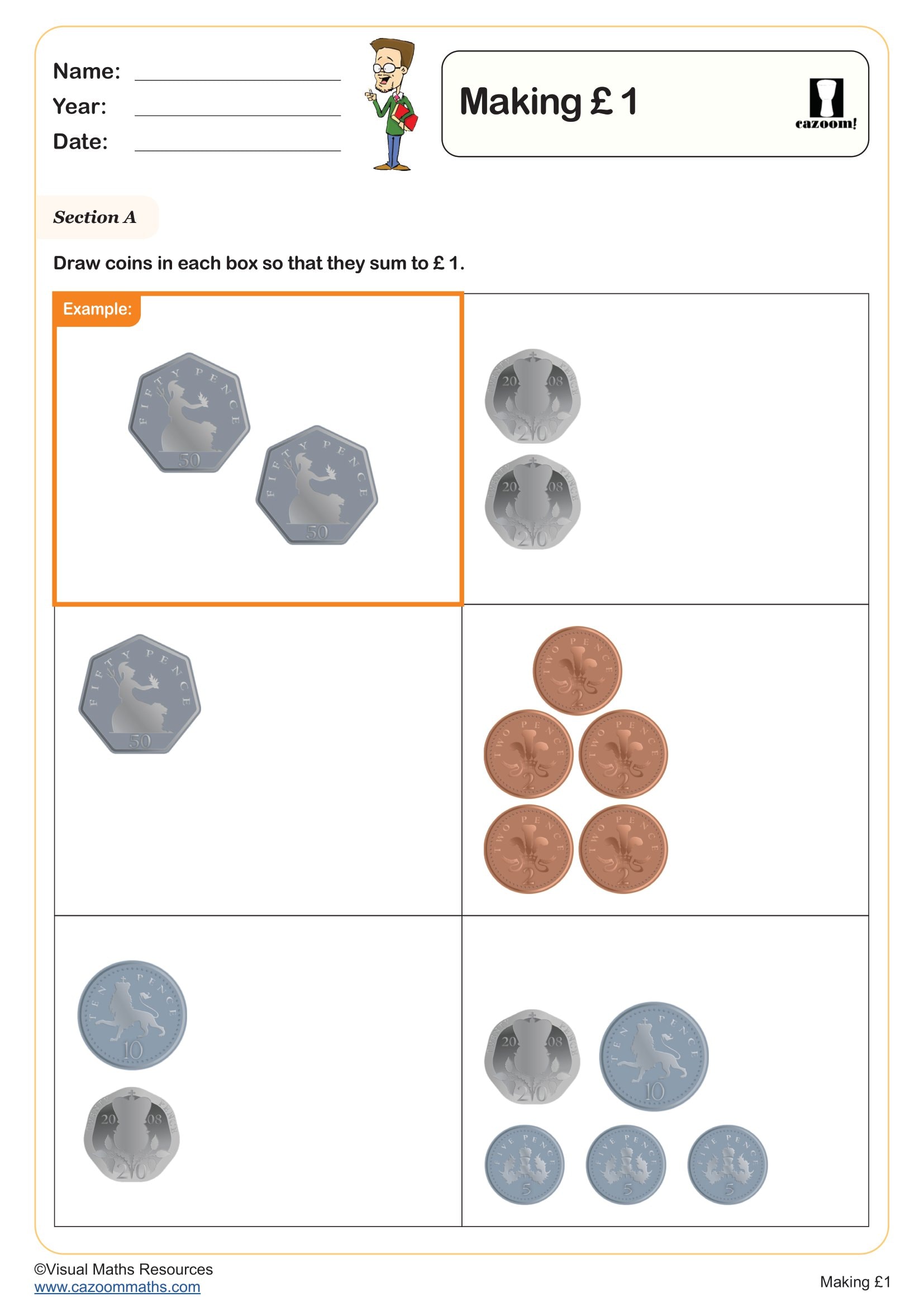
Measure Mass In Grams (A)
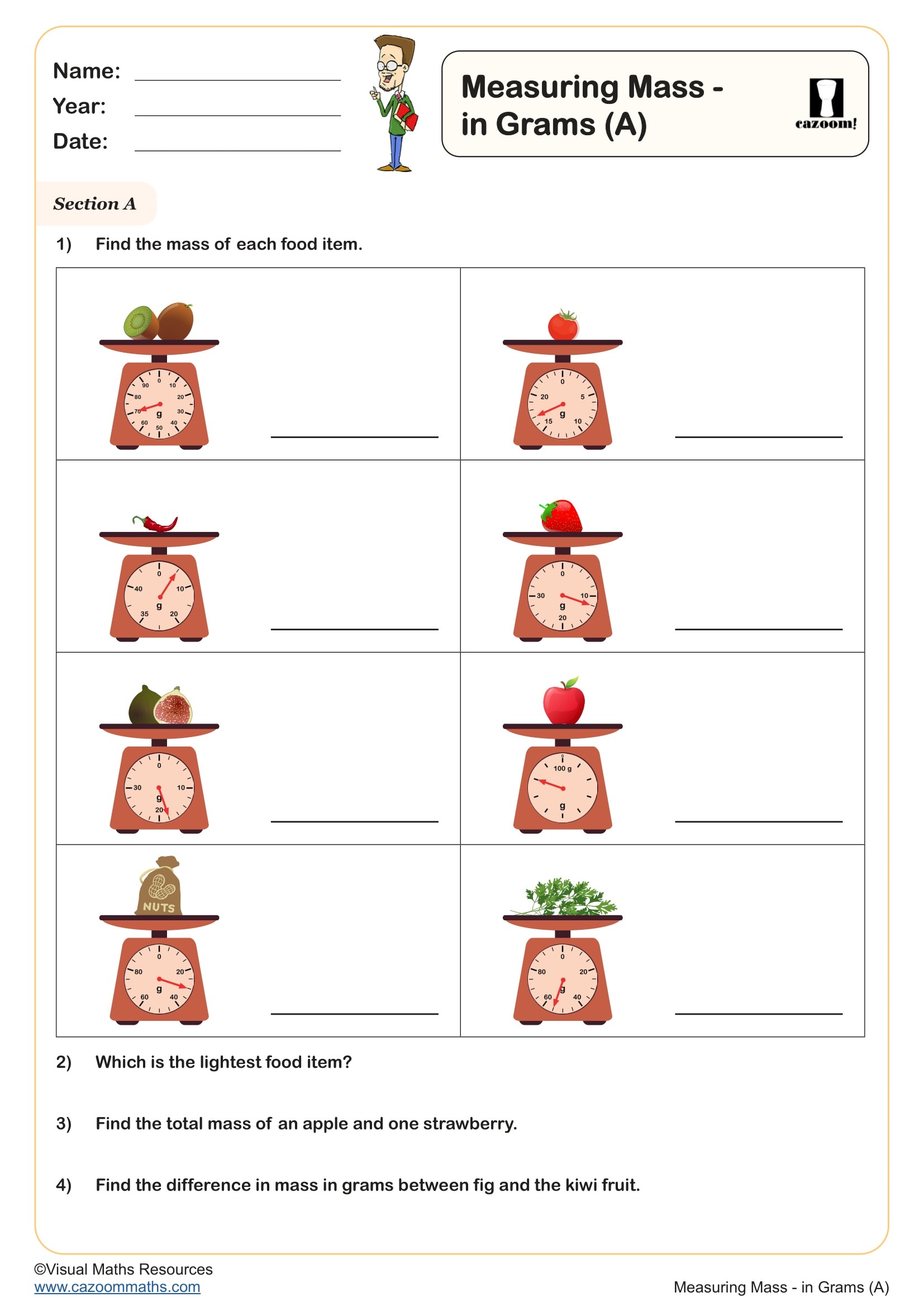
Measuring Mass (B)
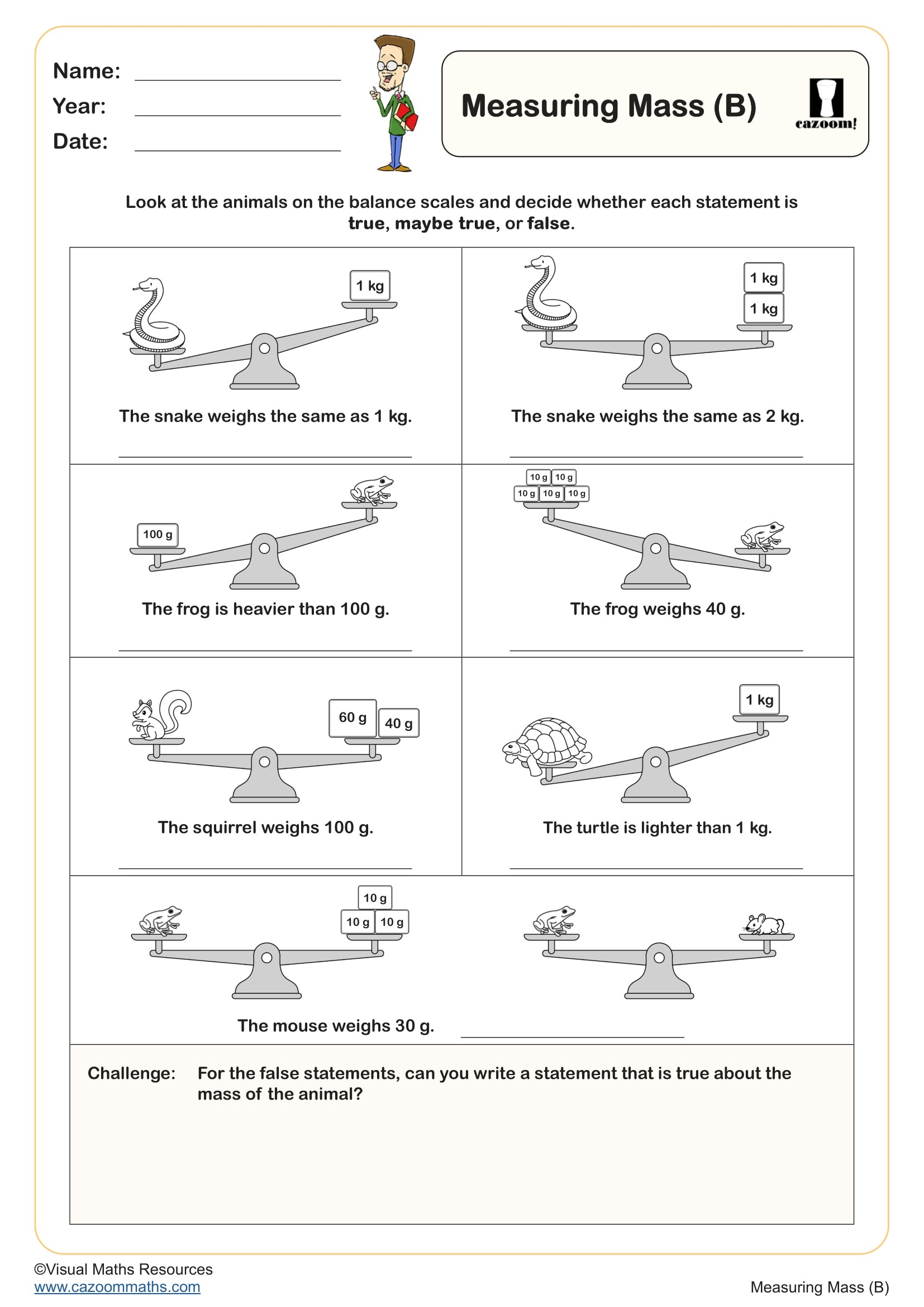
Measuring Temperature
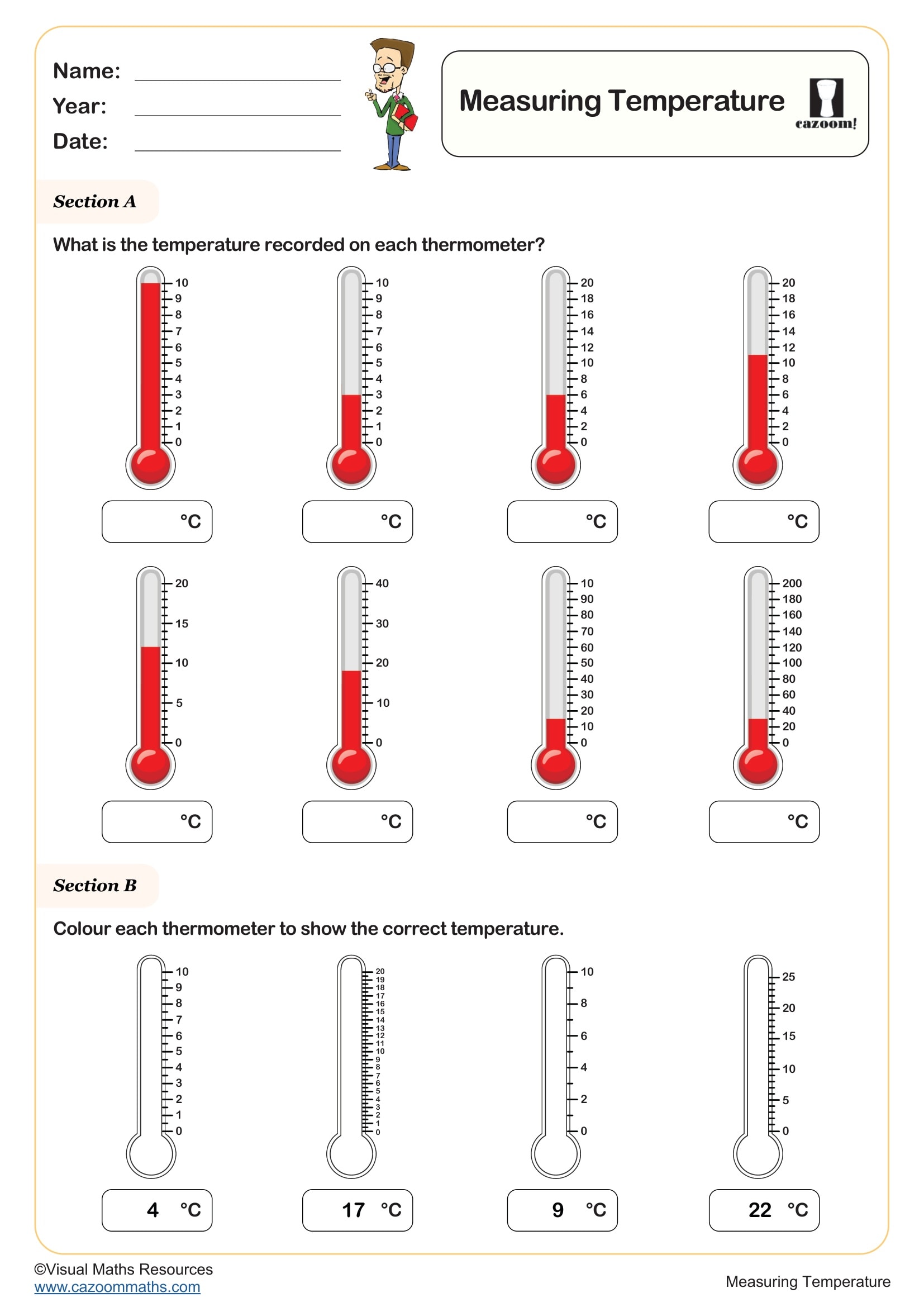
Measuring Volume (A)
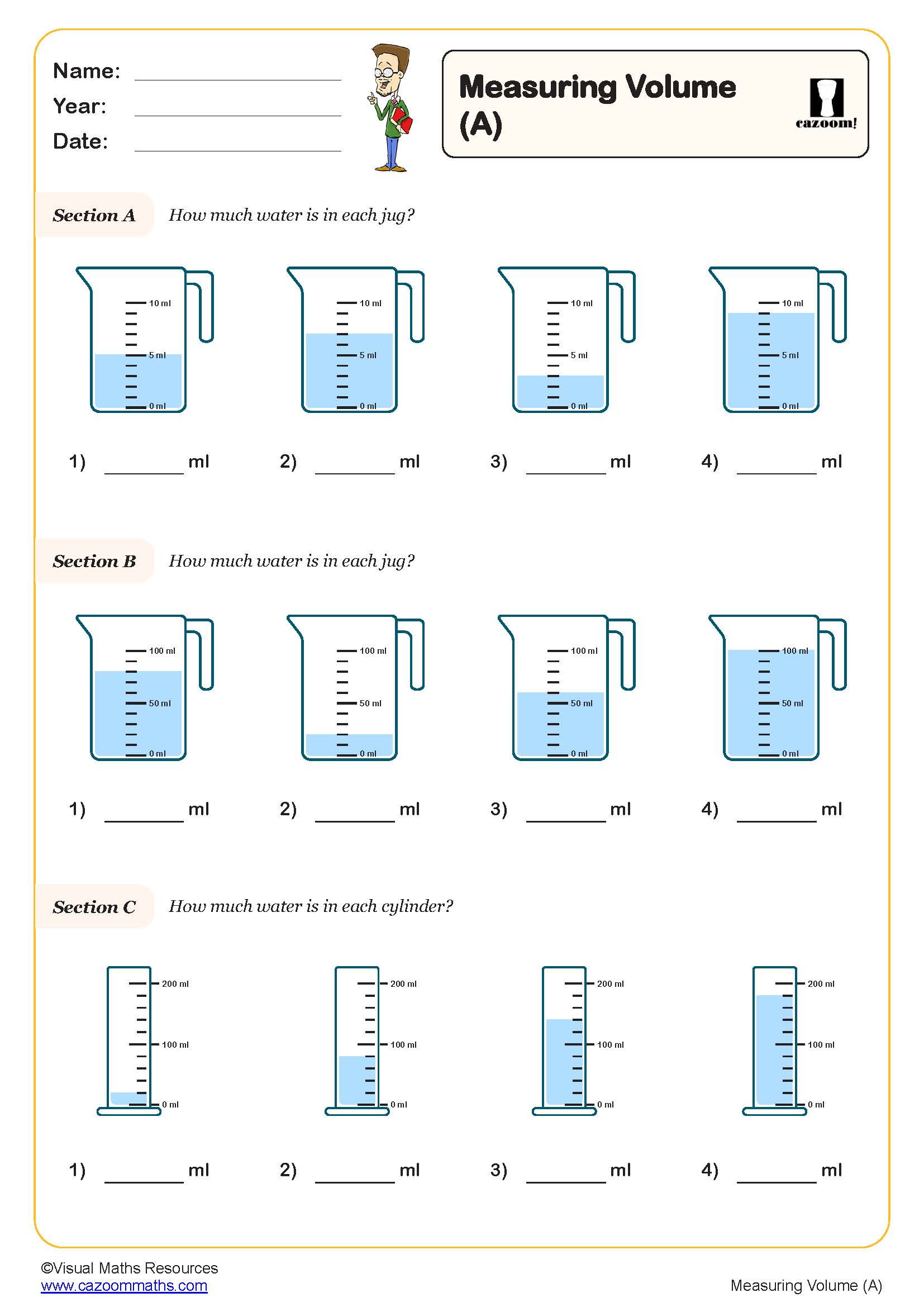
Measuring Volume (B)
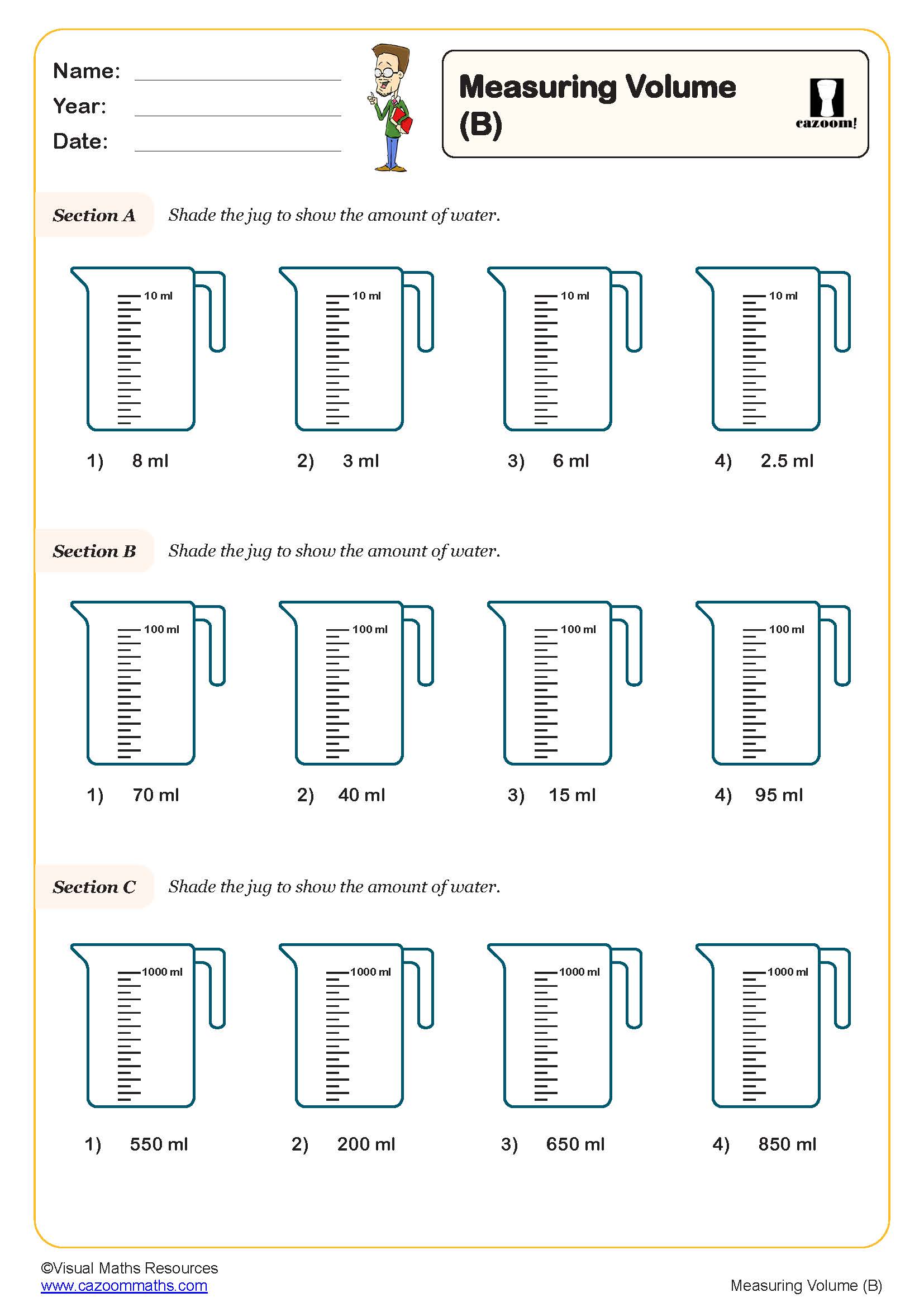
Recognising Money
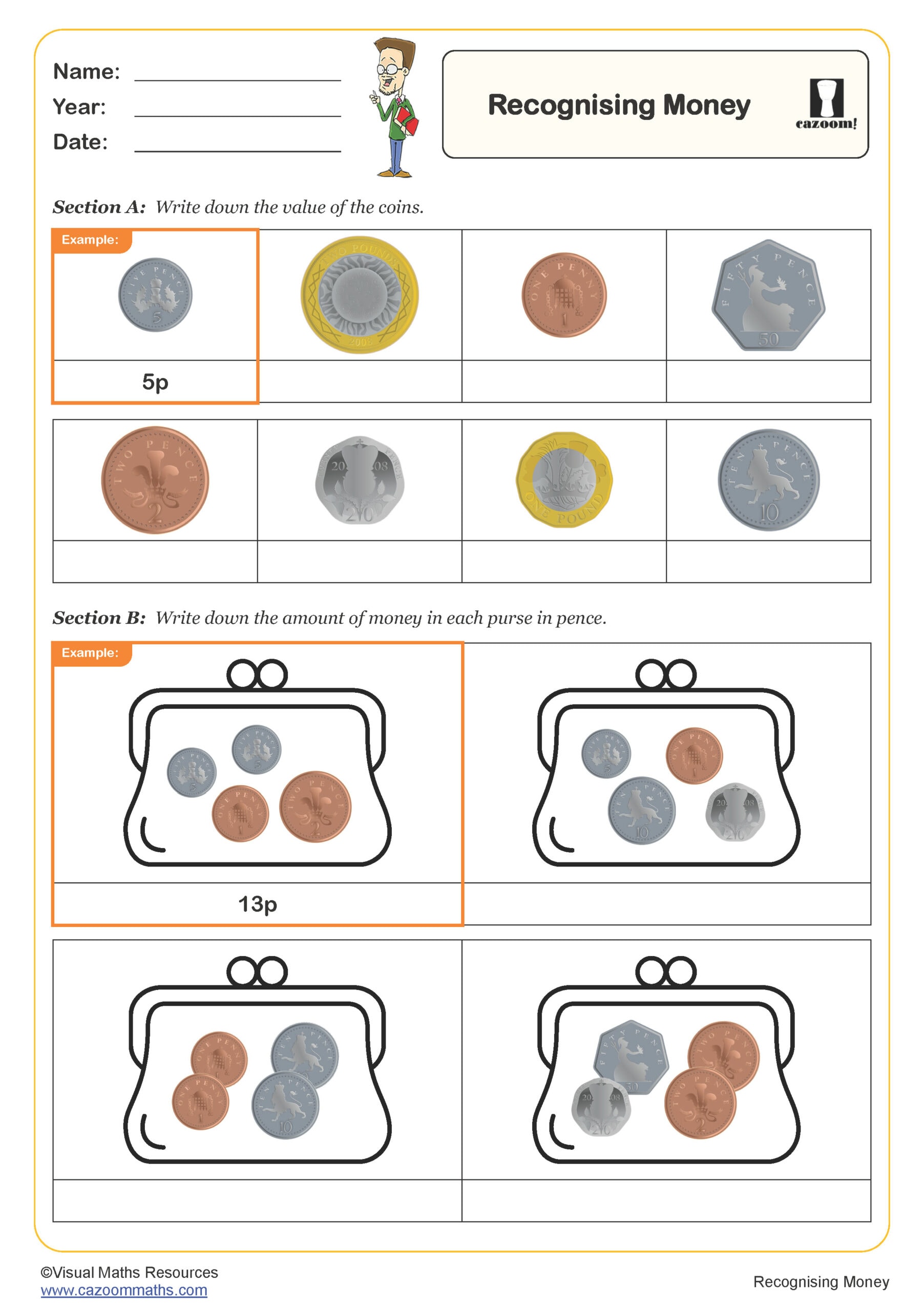
All worksheets are created by the team of experienced teachers at Cazoom Maths.
Measurement Worksheets Year 2 PDF Bundles with Detailed Solutions
We know how challenging it can be to find measurement worksheets for Year 2 that actually match what children need to learn. Our comprehensive PDF collection focuses specifically on centimetres, grams, and millilitres - the standard units that often trip pupils up. Each measurement worksheet Year 2 centimetres activity comes with worked solutions showing exactly how to read rulers and measuring tools correctly. Teachers love having these ready-to-print resources for morning work, homework, or quick assessment tasks.
Standard Units Mastery Through Progressive Year 2 Measurement Practice
Here's what we have discovered through classroom experience: children need tons of practice reading measurement tools before they feel confident. We have structured these Year 2 measurement worksheets to move gradually from simple centimetre measurements to more complex problem-solving. Pupils particularly enjoy the "measurement detective" challenges, where they measure classroom objects and record their findings. The progression builds from reading rulers to finding the difference in year 2 worksheet activities that develop real mathematical thinking.
Key Measurement Skills Our Year 2 Resources Develop
We have covered everything that Year 2 pupils need for confident measurement work throughout KS1. Our classroom testing shows that children who master these skills early become much more successful in Year 3 mathematics. These year 2 measurement activities tackle the tricky concepts that pupils often find challenging. Here's what your class will practice:
• Centimetre Accuracy - Reading rulers correctly and measuring objects to the nearest centimetre
• Scale Reading Skills - Understanding numbered marks on measuring tools and weighing scales
• Measurement Comparisons - Finding differences between lengths, weights, and capacities
• Problem-Solving Tasks - Using measurement facts to answer word problems and puzzles
• Data Recording - Writing measurements correctly using standard units and symbols
• Estimation Practice - Developing number sense about realistic measurements for familiar objects
Real-World Connections Where Year 2 Pupils Apply Measurement Knowledge
Children always want to know when they'll use measurement skills in real life - and the answer is everywhere! We enjoy showing pupils how classroom measurement connects to their interests and daily experiences. It's brilliant when they start noticing measurement opportunities during break time and sharing discoveries with the class. These practical applications help Year 2 pupils understand why measurement matters:
• Sports and Games - Understanding distances in running races, heights for jumping, and timing activities
• Art and Craft Projects - Measuring paper strips and fabric lengths, and creating scale pictures
• Science Investigations - Recording plant growth data, measuring liquid experiments, and comparing results
• Home Activities - Helping families measure ingredients, furniture spaces, and garden projects
• Technology Tasks - Understanding screen sizes, device measurements, and digital specifications